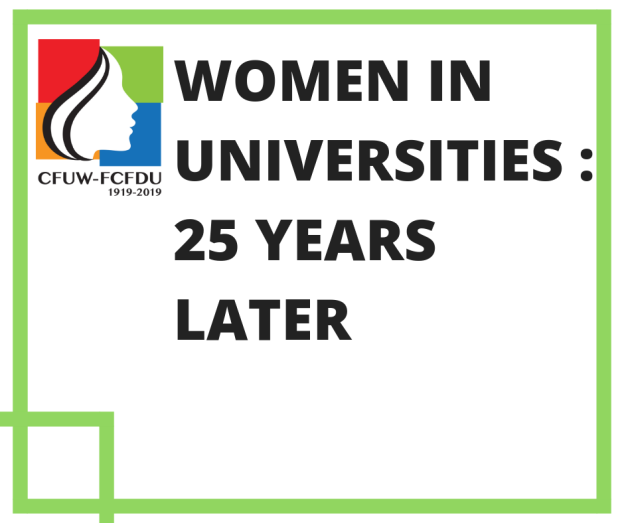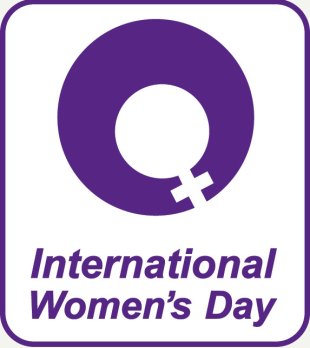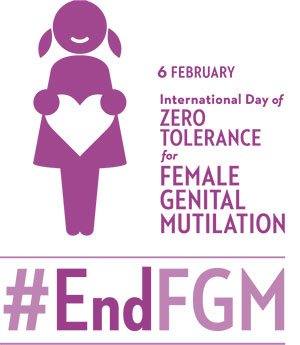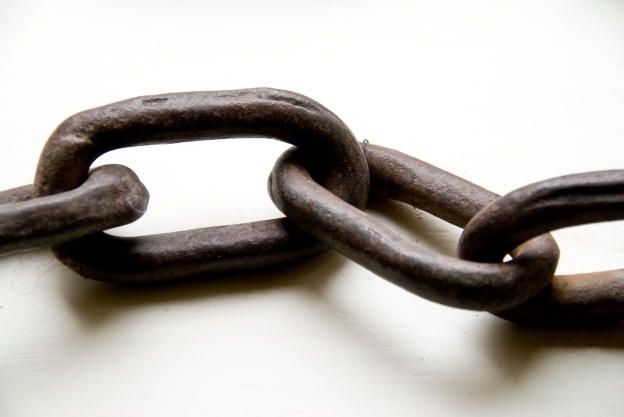|



|
Submitted by Saode Savary, UWCM President
Press Release
Montreal, March 12, 2018 – Today, The University Women’s Club of Montreal (UWCM) is proud to announce the winners of its first North American school competition called Olympes de la Parole. This year’s theme was: How access to information technology can help empower indigenous girls and women in Canada. The following three Montreal high schools; The Study, the Sacred Heart of Montreal and Villa Maria College, agreed to participate. Their projects were evaluated by a review panel of seven members.
The first prize is awarded to Villa Maria Collège for the project on Using Raspberry Pi Technology to Disseminate Mental Health Information Amongst Nunavummiut Girls and Women.
The second prize is awarded ex-aequo to The Sacred Heart School of Montreal for the project on Aboriginal women and empowerment via technology and to The Study for the project on Université du Nord.
The third prize is awarded to The Study for the project on The Importance of Education for Ikaluit Youth.
Ms. Deidre Kahwinehtha Diome, Chairperson for Kahnawake Combined School Committee (KCSC), and panel member commented: “When I hear what these young girls have to propose, I see a model of how to reconcile relationships between Canadians and the original people of this land.”
The UWCM launched the first edition of this competition on November 15, 2107, by highlighting the relationships between the competition and the themes that will be debated at the Sixty-Second Session of the UN Commission on the Status of Women in New York from March 12-23, 2018. This competition offers a unique opportunity for Montreal secondary school girls to engage in the global conversation on gender equality and learn how to influence policies that foster a gender-equal society.
Come celebrate our winners at a Scholarship Award Ceremony on April 6, 2018, starting at 7:15 pm, at the Atwater Library located at 1200 Atwater Ave., Westmount. Light snacks will be served.
ABOUT THE UNIVERSITY WOMEN’S CLUB OF MONTREAL Founded in 1927, in Montreal, by women university graduates involved in the promotion of quality education of girls and women, the UWCM grants annual scholarships to deserving candidates. UWCM is a member of the Canadian Federation of University Women (CFUW), a non-partisan, voluntary, self-funded organization with over 100 Clubs and 8,400 members across Canada. The CFUW holds special consultative status at the United Nations Economic and Social Council and serves on the Education Committee of the Canadian Sub Commission to UNESCO.
– 30 –
More Information
Savary, Chemist, Ph.D.
President
University Women’s Club of Montreal
Email: saodesavary.uwcm@gmail.com
Telephone: 514-561-9481
Website: https://uwcm.com/

March 8th is International Women’s Day (IWD), when The Canadian Federation of University Women (CFUW) joins others in celebrating the many women who have pushed and continue to push to break the social, economic, political and cultural barriers to gender equality. It is a day also to reflect on the progress still ahead.
“In the context of the federal budget released last week, this reflection is of significance, as it contains positive initiatives like the introduction of a ‘use it or lose it’ parental leave, increased funding for rape crisis centres, a 5-day paid leave for survivors of domestic violence, pay equity legislation, and increased funding for skills and job training. However, the budget falls short on the policies that would be most effective in ending gender inequalities, for which our clubs have advocated: a high quality, universally accessible, national child care program, universal pharmacare and a national action plan on gender-based violence” said Grace Hollett, CFUW National President.
This IWD, members across Canada come together to participate in many exciting events, including conferences, rallies, film screenings, plays and more. CFUW National Office is also partnering with a large coalition of Canadian and international organizations, including Amnesty International Canada, Inter Pares, Planned Parenthood Ottawa and Women’s Shelters Canada, in organizing “Hashtags and Beyond: 10 years of Honouring Local Feminists”. This year’s event takes place at the Horticulture Building in Lansdowne at 6:00 PM on March 8th and features the Femmy Awards ceremony honouring local feminist change-makers, an activist fair, powerful arts performances, great food and drink, and free child care.
CFUW clubs and members are proud to make a difference, showing “The Power of Women Working Together” by supporting women’s grassroots organizations abroad through the MATCH International Women’s Fund, our official partner for the 2018 IWD fundraising project. Through this partnership, CFUW highlights the importance of activists and women’s grassroots organizations in generating change and advancing gender equality.
We are also preparing to celebrate in 2019 CFUW’s 100th anniversary as one of Canada’s historic women’s organizations advocating for gender equality, public education, human rights, social justice, and peace, at the local, national, and international levels. Every year, CFUW and its Clubs collectively award over $1 million to exceptional and inspiring women to help them pursue post-secondary studies.
To find out more about our events, advocacy priorities, awards, as well as to find the Club closest to you, go to www.cfuw.org or email cfuwgen@rogers.com. New members are always welcome.
About CFUW
Founded in 1919, the Canadian Federation of University Women (CFUW) is a self-funded, non-partisan, non-profit, voluntary organization. Close to 8400 CFUW women from across Canada promote women’s equality, human rights, justice and peace. CFUW is active in public affairs, working to raise the social, economic and legal status of women and girls and to contribute to education, the environment, peace, justice and human rights. CFUW has special consultative status at the United Nations (ECOSOC) and serves on the Education Committee of the Canadian Sub-Commission to UNESCO.
For more information please contact:
Grace Hollett Robin Jackson
President, CFUW – FCFDU Executive Director, CFUW – FCFDU
president@fcfdu.org 613-234-8252 or cfuwed@rogers.com

Prepared by Kathryn Wilkinson, CFUW VP Education
February 6 is the United Nations International Day of Zero Tolerance for Female Genital Mutilation. The World Health Organization (WHO) estimates that 120 to 140 million women have been subjected to FGM and 3 million girls are at risk each year. So, what is FGM, or as it is sometimes called, female circumcision or cutting? It is a procedure that alters or causes injury to the external female genitalia and is a procedure that has absolutely no health benefits, in fact the reverse. What it involved varies from the partial removal of the clitoris to excising the clitoris and labia and stitching the walls of the vulva, leaving only a tiny opening. According to WHO, FGM can cause severe bleeding and even death at the time of the procedure, infections from tools they used, and later, problems with urination, cysts, infections, as well as complications in childbirth and increased risk of newborn deaths. It can also deny women sexual pleasure.
Mary Laiser is a Masai woman and a Community Facilitator for TEMBO, a Canadian NGO working in a largely Masai community in northern Tanzania. Mary is also a mother and the first woman in her community to refuse to allow her daughter to be circumcised. Among the Masai, this is a coming of age procedure (in some parts of the world, FGM can happen as early as a year old); she invited her family and friends to the circumcision and then announced that it was a celebration of her daughter’s coming of age, not a cutting. It was a very brave move in a very traditional and patriarchal society. Mary now encourages other families to hold alternative ceremonies and teaches about the undesirability of FGM to school children through the Sara/Juma Clubs, to women through outreach classes, and to anyone who will listen.
But, we would be fooling ourselves if we thought that FGM was only an issue in the developing world. In the summer of 2017, the Toronto Star featured an in-depth investigation into FGM in Canada. As a country of immigrants, we know there are women and girls arriving in the country who have been subjected to FGM but there is also evidence that, despite being against the law, girls are being taken abroad for FGM and even having the procedure here in Canada.
The first International Day of Zero Tolerance for Female Genital Mutilation was on February 6, 2003.
The Toronto Star series can be accessed at:
The Girl who said No to FGM – a video
https://www.theguardian.com/society/video/2017/mar/17/jaha-dukureh-promise-fgm-video
The Girl who Said No to FGM is the story of Jaha Dukureh, a survivor of FGM and forced child marriage. She was named by Time magazine as one of the 100 most influential people in the world.
http://www.simonandschuster.co.uk/books/Cut-One-Womans-Fight-Against-FGM-in-Britain-Today/Hibo-Wardere/9781471153983 – non-fiction
The author was mutilated as a six year old before she moved from Somalia to London, England as a teenager. She still lives in London where she works as an FGM campaigner, helping young girls whose families plan to take them abroad for the procedure.
Ayann Hirsi Ali is a Somali-born Dutch activist and feminist. She was circumcised when she was five and has written of the implications of this procedure in her autobiography Infidel. She is outspoken in her criticism both of FGM and male circumcision.

28 years ago, Canada was shaken by the violent mass murder of 14 young women at École Polytechnique, generating awareness on the ongoing social issue of gender-based violence and misogyny.
Today, we commemorate and honour the lives of everyone who has died from gender-based violence and the intersection of systemic discrimination such as homophobia, poverty, and racism, including discrimination against Indigenous Peoples. This day is also about asking why acts of violence against women are still happening in 2017.
Violence against women continues to be a major tragedy. There has been no significant reduction of the problem, as rates of sexual assaults continue to remain high. Both police-reported and self-reported data indicate that women represent the majority of victims of specific forms of violence such as sexual violence, stalking and intimate partner violence, including intimate partner homicide.
#METOO, the recent social media trend, saw many courageous women sharing their stories, shedding light on a widespread culture that promotes acts of violence against women, in particular, sexual harassment and assault. The prevalence of toxic attitudes and violent acts against women is deeply disturbing but not surprising. It calls for a long overdue reflection on the social and institutional structures that promote these acts, as well as on our own actions.
Too many continue to sanction sexist beliefs and attitudes that dehumanize women and paint them as weak and inferior. These beliefs impact women’s rights and the level of respect they are shown. Society’s view of women has normalized the behaviours and attitudes that promote gender-based violence. Behaviours can take the form of jokes about sexual harassment or rape, meeting the act of catcalling a woman on the street with laughter, or the reaction of insistence and a predatory attitude when a woman says “NO”.
Consider a joke about harassment or consent. Even when a person insists they meant nothing by it, it still promotes a culture of violence and discrimination that has serious and real impact on women. The problem is that joking about consent has become so commonplace, it reinforces the perception that disregarding consent is somehow socially acceptable.
Being aware of the collective impact of these attitudes, and discussing ways to address the situation, not only among women, but among all of us, is an honest first step toward transforming our surroundings and confronting the issue. There is no such thing as an innocent bystander. Acts of gender-based violence concern us all and must be challenged, especially by those who think they have the privilege to ignore them.
To create change, it is essential to recognize that the issue of violence against women knows no frontiers. It happens every day, in our country, in our city, and in our neighbourhood.
Because violence against women concerns everyone, let’s raise awareness and step up to reinforce acts of respect to everyone, but particularly to women and girls!
Article prepared by The Canadian Federation of University Women

Human trafficking is a global phenomenon that is fueled by poverty and gender discrimination. Of the estimated 21 million victims of human trafficking, 71% are women and children. Because most trafficked persons are never identified as victims, they are unable to access protection or assistance. (United Nations Office on Drugs and Crime Global Report on Trafficking in Persons).
Victims don’t come forward for many reasons. They may fear for their lives or the safety of their loved ones, they may not realize that they are victims of human trafficking, they may have been taught to mistrust law and government authorities, they may fear detention and deportation, they may not speak the language, they may have been lied to about, or be unaware of, their rights in Canada.
In 2010, the General Assembly adopted the Global Plan of Action to Combat Trafficking in Persons, including the establishment of a UN Voluntary Trust Fund for victims of trafficking, especially women and children.
This year’s World Day against Trafficking in Persons (July 30th) focuses on “Acting to Protect and Assist Trafficked Persons”, highlighting one of the most pressing issues of our time. The intensification of the movement of refugees and migrants since 2014 is the largest seen since World War II. Within these migratory movements are vulnerable children, women and men who are easy targets for traffickers and smugglers.
The Canadian Federation of University Women (CFUW) continues the series highlighting significant days to facilitate the conversation about the Sustainable Development Goals (SDG). Our purpose is to overlay a recognized Theme Day with the SDG lens in order to shine a light on and bring the conversation to the grassroots level.
We believe change begins with consciousness. For this significant day, Trafficking in Persons we are intentionally making connections to SDG #4 – Quality Education, #5 – Gender Equality, #16 – Peace, Justice and Strong Institutions, and #17 – Partnerships for the Goals (however, connections to any other SDG may be implied).
We invite you to read contributions on the subject of Human Trafficking by CFUW members and partners: World-Day-against-Trafficking-in-Persons_2017
OTTAWA – August 25, 2015 – Although a leaders’ debate focused on women’s issue may not be moving forward, CFUW is pleased to see issues affecting women’s economic participation, such as child care and parental leave, on the radar of political parties.
The economic participation of women is essential to Canada’s economy and should not be underestimated. The OECD estimates that closing the gap in women and men’s economic participation could grow our economy by between 9% and 16% in the next twenty years.
“Policies that support women’s economic participation include those that make it easier for mothers to stay in and return to the workforce, such as affordable and accessible child care, parental leave, and greater flexibility in the workforce”, said Doris Mae Oulton, President of CFUW. “We’re therefore pleased to see that political parties are making these policies part of their platforms”.
“It’s unacceptable that women continue to make up the majority of low-wage, part-time workers, in part owing to the high cost of caring for children”, said Ms Oulton. “That’s why it’s so encouraging that child care and parental leave has become a prominent issue in this election. Making quality early learning and child care more affordable is one key way to advance women’s economic equality and participation”.
So far in the election, the NDP, the Conservative Party of Canada, the Liberal Party of Canada, and Green Party have presented their visions for defraying to costs of child care. Last week the Liberal Party of Canada also announced that they intend to make parental leave more flexible, and provide federally regulated employees with the right to request more flexible work arrangements to accommodate family obligations.
CFUW is however disappointed that a leaders’ debate focused on women’s issues will not be going forward.
“Without the commitment from all party leaders, the Up for Debate campaign pushing for the debate has had alter its plans”, said Ms. Oulton. “A debate would have given much greater visibility to issues like violence against women and women’s economic equality in the election. In lieu of a debate, Up for Debate will be organizing one on one interviews with leaders. CFUW and other members of the campaign will also be looking for other opportunities to raise the issues with candidates, the leaders and voters.”
With the Globe and Mail election debate on the economy scheduled for September 17th, CFUW hopes to hear all the leaders explain their in-depth plans for advancing women’s economic equality, including other issues like poverty, housing and homelessness, the gender wage gap and violence against women.
CFUW is a non-partisan, voluntary, self-funded organization with over 100 CFUW Clubs, located in every province across Canada. Since its founding in 1919, CFUW has been working to improve the status of women, and to promote human rights, public education, social justice, and peace.
– 30 –
For more information contact Tara Fischer, Advocacy Coordinator, advocacy@cfuw.org or 613-234-8252 ext. 106
Ottawa – August 17, 2015 – The Canadian Federation of University Women (CFUW) is pleased to announce the release of seven videos on YouTube on the subject of early learning and child care. These videos were recorded at the CFUW Guelph Community Child Care Forum, organized to bring awareness to the importance of early childhood education and the serious lack of quality licensed child care spaces in Canada.
“The release of these videos is timely with the upcoming 2015 election”, said Doris Mae Oulton, President of CFUW. “They are intended not only to raise awareness about the role of different levels of government in providing child care support but also to encourage people to engage their candidates in supporting an effective national child care policy”.
The videos feature the following speakers:
Martha Friendly, Executive Director of the Child Care Resource and Research Unit – who addresses the federal role in child care:
Martha Friendly -The Vision of Early Childhood Education and Care
Martha Friendly -Why Childcare Doesn’t Work in Canada
Martha Friendly – The Patchwork Quilt of Childcare
Martha Friendly – Turning the Vision into Reality
Zeenat Janmohamed, faculty member in the School of Early Childhood at George Brown College and visiting Scholar at the Atkinson Centre for Society and Child Development at the University of Toronto, who talks about Ontario’s move to integrate child care into the Ministry of Education:
Zeenat Janmohamed – Changes in Ontario
Zeenat Janmohamed – The Survey on Childcare
Lorna Reid, Director of the Early Child Care and Learning Centre at University of Guelph, who talks about the challenges operators face in meeting the needs of families.
Lorna Reid – Childcare – Getting it Right in Ontario
CFUW is a non-partisan, voluntary, self-funded organization with over 100 CFUW Clubs, located in every province across Canada. Since its founding in 1919, CFUW has been working to improve the status of women, and to promote human rights, public education, social justice, and peace.
– 30 –
For more information please contact Tara Fischer, at advocacy@fcfdu.org or 613-234-8252 ext. 106
 People across Canada are reacting to the treatment of television reporter Shauna Hunt. It is appalling that women in the media are still challenged by forms of violence such as that experienced by the female journalist most recently. Women in the media should not be subjected to any form of violence. Whether it be verbal, as in this case, or in the form of negative representation that so adversely affects self-image and status in society.
People across Canada are reacting to the treatment of television reporter Shauna Hunt. It is appalling that women in the media are still challenged by forms of violence such as that experienced by the female journalist most recently. Women in the media should not be subjected to any form of violence. Whether it be verbal, as in this case, or in the form of negative representation that so adversely affects self-image and status in society.
The United Nations Beijing Platform for Action, unanimously supported by 189 countries in 1995, identifies Women and the Media as a critical area of concern. “Women’s rights are human rights” seems to have been lost in the Canadian context and particularly for women in media.
It is time for the governments of Canada to review policies and initiatives to prevent such occurrences. Canada, which used to be number one on the equity index, has slipped to number twenty-three. Is this due to negligence, complacency or indifference? What causes this flow of aggression towards women in the media? Who has the power to make a difference in how women are represented or treated in the media? The Canadian Federation of University Women believes focused action in addressing this issue is imperative.
Further to the humiliation suffered by female reporters, who are now verbalizing their concerns, is the targeted campaign by some men to normalize violence. It is no joke that the debasing of half the population has been viewed as funny or acceptable. All such communication should be viewed as a hate crime, one that should be taken seriously and treated as injurious to women in society.
Such acts of violence against women in the media are barriers to full and equal participation of women reporters. Negative representation of women in the media also undervalues women by denying their right to full respect in society. This is just one of the many reasons CFUW supports the creation of a comprehensive National Action Plan on Violence against Women and Girls. We have contributed to a Blueprint for such a plan and hope that the Government of Canada will work with us and other stakeholders to see it to fruition.
by Allegra Morgado
Today marks the fourth annual International Day Against Victim-Blaming. Since the topic of rape culture has become such a forefront issue in the media and on college campuses in recent years, the issue of victim blaming has been more widely discussed. Although the thought of blaming a victim for an action taken against them may sound ludicrous – the video “If we treat robbery like rape” shows you just how ridiculous it seems in other contexts – almost all sexual assault victims have to deal with it at some point in their lives. It is one of the reasons that the majority of victims never report an assault. So why do we victim blame? What is gained from this practice that is clearly harmful to all victims of sexual assault?
Although there is no concrete answer or reasoning behind victim blaming, there are a lot of different reasons why people do it. In order to figure out the answer we need to talk about three contributing factors – our assumptions of why women get sexually assaulted, how we talk about sexual assault to young people, and why people commit sexual assault. Although it is important to recognize that men are sexually assaulted, because over 80% of sexual assault victims are women, this post will mostly focus on women.
The view of women’s and men’s sexuality is the first thing that needs to change. In an interview about her book The Purity Myth: How America’s Obsession With Virginity is Hurting Young Women on NBC’s “The Today Show”, Jessica Valenti explains that “the ‘purity myth’ is the lie that women’s sexuality has some bearing on who we are and how good we are.” This view is not unique to the United States – all over the world, including in Canada, women are harshly judged on their decisions about their own personal sexuality. This judgement is often ingrained, be it from religion, media, or just cultural norms, and affects how women who are open about their sexuality are viewed. While men are often praised for their “sexual conquests” women have historically been judged and shamed. The connotation behind the word “slut” is one clear example. These views are centuries old and mostly comes from the patriarchal societies that we live in, where women’s rights have only really been a topic of conversation for the past 125 or so years.
When women are constantly judged for their sexuality, people are scared and skeptical about anything that has to do with it. This judgment is where the “what was she wearing?” and “why was she out so late?” questions often stem from. As Dr. Juliana Breines says in her article “Why Do We Blame Victims?” on the University of California, Berkley’s Greater Good Science Center website says “victims threaten our sense that the world is a safe and moral place, where good things happen to good people and bad things happen to bad people”. This is why we try to find a reason to blame the victim; if it is their fault, then those of us who dress in certain ways or take all possible precautions to prevent rape must be safe.
Rape is preventable, but first we have to change the way talk about rape and sexual assault. Although it is beginning to change, for far too long the conversation has been focused around telling women not to get raped, rather than telling men not to rape. When a victim is blamed or we suggest she could have prevented it in some way, we are sending the message that an assailant’s behaviour is in part excusable. There also needs to be a change in the conversation about consent. By changing the statement to “Yes Means Yes” from “No Means No,” we change the requirement for consent to an explicit yes, rather than the absence of a no. Although it may not seem “sexy” to stop during an intimate moment to ask for consent, it is necessary to have open communication and dialogue to ensure that both parties are happily consenting to the activity at hand, and that consent is ongoing. The Ontario government’s new sex-education curriculum, which includes consent based lessons, is a very positive step in that direction.
In order to stop sexual assault, it is essential to continue the conversation about consent and the fight for women to be truly equal. Because as long as there are cases like those of Rehtaeh Parsons and Amanda Todd, there is a need for an International Day Against Victim-Blaming. For more information on the day and what you can do to help out, check out the Facebook event, hosted by SlutWalk, here: https://www.facebook.com/events/1390690721209922/